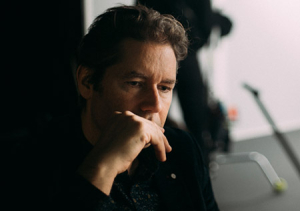Biography
Marcel Kolvenbach, born on June 4, 1969, studied visual communication at the Düsseldorf University of Applied Sciences. After graduating in 1993, he began working as a television journalist and investigative documentary filmmaker. In 1996, he received a RIAS grant for the German Public broadcasting company ARD newsroom to cover the U.S. presidential election. From 1997 to 2000 he lived in New York, where he worked for the ARD news studio. He then worked for the ARD studio in Brussels until 2004.
In January 2005, Kolvenbach's biography of Bill Clinton was published as part of the anthology "Liebe an der Macht: Paare die Geschichte schrieben," which accompanied the ARD documentary series of the same name. In the same year, Marcel Kolvenbach and Ekkehard Sieker received the New York Festival Bronze Award for the ARTE documentary "Das Geheimnis der Fledermaus", about the Bacardi family from Cuba and their involvement in U.S. Latin American politics.
For the documentary "Tod in der Zelle - Warum starb Oury Jalloh" (2005, from the series "die story"), about the still unsolved death of the asylum seeker Oury Jalloh in a Dessau prison cell, he and co-director Pagonis Pagonakis received the German Human Rights Film Award and the Marler Film Award.
In the following years, Kolvenbach remained committed to the themes of human rights, humanism and social responsibility with his reportages and documentaries. From 2009 to 2012, he traveled with his camera to twelve countries in Africa, resulting in the documentaries "Über den Inseln Afrikas" (2010) and "Atomic Africa." The latter explored the plans to build numerous nuclear power plants on the continent. The film was nominated for the Grimme Award and won Best Green Report at the Green Screen Festival in Eckernförde.
In 2012, Kolvenbach moved to Cologne, where various public broadcasters were among his clients. Together with Ayse Kalmaz he realized the documentary feature "Dügün - Hochzeit auf Türkisch" ("Dügün - Marriage the Turkish Way", 2015), which follows several German-Turkish women in Duisburg-Marxloh from the wedding preparations to the big day of the marriage. With Karsten Laske he made the documentary "Tahrib" (2016), which accompanies refugees between Kenya, Istanbul and Greece. In the documentary "Wir hacken Deutschland" (2017), Kolvenbach showed how vulnerable the digitalization of the energy transition has made those technical systems that are supposed to form our energetic future. In addition to his own films, Kolvenbach has also been involved in the work of other screenwriters and directors as a cameraman and producer.
In 2019, Marcel Kolvenbach began work on the very personal documentary feature "Auf der Suche nach Fritz Kann" ("Searching for Fitz Kann"), in which he traces the life and fate of his grandmother's first husband, the German Jew Fritz Kann, who was deported and murdered by the Nazis in 1942. The premiere of the film took place in 2022. It received the audience award at the Kinofest Lünen 2022. Parallel to this film, Kalvenbach realized the documentary "In Situ", about social inequalities in the Argentine health care system, in collaboration with two Argentine universities. The film was broadcast on Argentine television in September 2022. In January 2023, "Auf der Suche nach Fritz Kann" was released in German cinemas.
In addition to his work as a writer and director, Marcel Kalvenbach is a professor of documentary film at the Cologne Academy of Media Arts (KHM).
